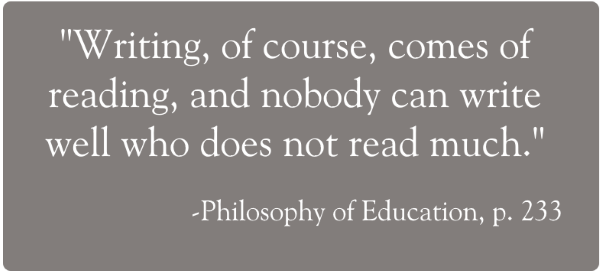
Why did Charlotte Mason include drawing as one of the essential subjects in her curriculum? And why is ADE re-releasing the original discussion on drawing as one of the basics this season? This return to the subject of drawing will refresh your thinking about the necessity of drawing, its broad application to many subjects, and some practical guidance for implementing drawing in the feast.
Listen Now:

“It is only what we have truly seen that we can truly reproduce, hence, observation is enormously trained by art teaching. Personally, I believe every living soul can learn to draw from actual objects, if the eye has not first been vitiated by seeing copies of them.” (Miss Pennethorne, PR 10)
“This is what we wish to do for children in teaching them to draw–to cause the eye to rest, not unconsciously, but consciously on some object of beauty which will leave in their minds an image of delight for all their lives to come.” (Vol. 1, p. 313)
“Art, when rightly directed, is educational, for it trains not only one faculty, but all the faculties together; it trains the hand and the eye, and it trains the head and the heart; it teaches us to see and to see truly; it teaches us to think–that science can do; but it teaches us also to admire and to love; it disciplines the emotions.” (Mr. Collingwood, The Fesole Club Papers)
“…the great benefit of “brushwork” being that it can be made quite a moral training in exactness and decision.” (Mrs. Perrin, “Brush Drawing”, PR 4)
“Children should learn to draw as they learn to write. The great point is that they should be encouraged, not flattered. With no help and encouragement the child gradually loses his desire to draw.” (Mrs. Steinthal, “Art Training in the Nursery”, PR 1)
“There are two great points that must be remembered if we wish to make our system of art teaching…successful. The first is, always keep the children interested. Next, let us understand that drawing is not only learnt with a pencil and a piece of paper….The chief value of drawing is that it trains the eye to see things as they are.” (Mrs. Steinthal, PR 1)
“…we must be careful not to offer any aids in the way of guiding lines, points, and other such crutches; and also that he should work in the easiest medium; that is, with paint-brush or with charcoal, and not with a black-lead pencil. Boxes of cheap colours are to be avoided. Children are worthy of the best.” (Vol. 1, p. 313)
“The first buttercup in a child’s nature note book is shockingly crude, the sort of thing to scandalise a teacher of brush-drawing, but by and by another buttercup will appear with the delicate poise, uplift and radiance of the growing flower.” (Vol. 6, p. 217)
“Drawing is nothing to do with talent, but can be done with observation, intelligence and application–or by seeing, remembering and expressing and is a fundamentally educative subject.” (Juliet Williams, “The Teaching of Drawing and Its Place in Education”, PR 34)

Home Education (Volume 1), pp. 292-295 (What is commonly thought of “drawn narrations”)
School Education (Volume 3), p. 205
Ourselves (Volume ), Book I, Part II, Chapters II and V
An Essay Towards a Philosophy of Education, Book I, Chapter X (f)

Drawing on the Right Side of the Brain, Betty Edwards
(Affiliate Links)

Dallas Nachtigall’s Bestowing the Brush Drawing Courses
Drawing Lessons, Florence Monkhouse (PR Article)
Brush Drawing, Miss K. Loveday (PR Article)
The Teaching of Drawing and Its Place in Education, Juliet Williams (PR Article)
Brush Drawing, Mrs H. Perrin (PR Article)
Fesole Club Papers, Mr. W. G. Collingwood







